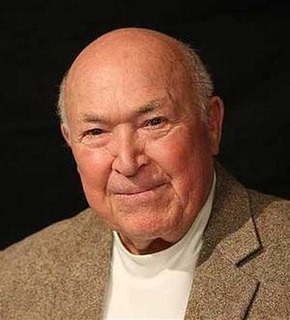A Quote by Catherine Brady
Chekhov used to correspond with aspiring writers, and once he gave this advice to Maxim Gorky when he was encouraging him to pare his wordy sentences: "When someone expends the least amount of motion on a given action, that's grace." The short story, by definition, embodies this notion of grace, because it requires such forceful compression to achieve its effects.
Related Quotes
Grace has to be the loveliest word in the English language. It embodies almost every attractive quality we hope to find in others. Grace is a gift of the humble to the humiliated. Grace acknowledges the ugliness of sin by choosing to see beyond it. Grace accepts a person as someone worthy of kindness despite whatever grime or hard-shell casing keeps him or her separated from the rest of the world. Grace is a gift of tender mercy when it makes the least sense.
This is the amazing story of God’s grace. God saves us by His grace and transforms us more and more into the likeness of His Son by His grace. In all our trials and afflictions, He sustains and strengthens us by His grace. He calls us by grace to perform our own unique function within the Body of Christ. Then, again by grace, He gives to each of us the spiritual gifts necessary to fulfill our calling. As we serve Him, He makes that service acceptable to Himself by grace, and then rewards us a hundredfold by grace.
If a person has grasped the meaning of God's grace in his heart, he will do justice. If he doesn't live justly, then he may say with his lips that he is grateful for God's grace, but in his heart he is far from him. If he doesn't care about the poor, it reveals that at best he doesn't understand the grace he has experienced, and at worst he has not really encountered the saving mercy of God. Grace should make you just.
I've always loved short stories. Even before I was a writer I was reading short stories - there were certain writers where I just felt like they could do in a short story what so many writers needed a whole novel to do, and that was really inspiring to me. Alice Munro, I felt that way about from an early time. Grace Paley.
Grace stands in direct opposition to any supposed worthiness on our part. To say it another way: Grace and works are mutually exclusive. As Paul said in Romans 11:6, "And if by grace, then it is no longer by works; if it were, grace would no longer be grace." Our relationship with God is based on either works or grace. There is never a works-plus-grace relationship with Him.
Grace is something you can never get but can only be given. There's no way to earn it or deserve it or bring it about anymore than you can deserve the taste of raspberries and cream or earn good looks. A good night's sleep is grace and so are good dreams. Most tears are grace. The smell of rain is grace. Somebody loving you is grace.
It is grace at the beginning, and grace at the end. So that when you and I come to lie upon our death beds, the one thing that should comfort and help and strengthen us there is the thing that helped us in the beginning. Not what we have been, not what we have done, but the Grace of God in Jesus Christ our Lord. The Christian life starts with grace, it must continue with grace, it ends with grace. Grace wondrous grace. By the grace of God I am what I am. Yet not I, but the Grace of God which was with me.
It has been said that God's gift is also indescribable because of the grace by which it is given. God, who is rich in mercy, gave the world the gift of His dear Son while we were at enmity with Him. Paul says: 'But God commendeth His love toward us, in that, while we were yet sinners, Christ died for us' (Rom. 5:8). Therefore, in Him we are freely given all things: redemption, forgiveness of sins, righteousness, peace, hope, wisdom and knowledge.
For here we are so blind and foolish that we never seek God until he, of his goodness, shows himself to us. It is when we do see something of him by his grace that we are stirred by that same grace to seek him, and with earnest longing to see still more of his blessedness. So I saw him and sought him; I had him and wanted him. It seems to me that this is and should be an experience common to us all.




































